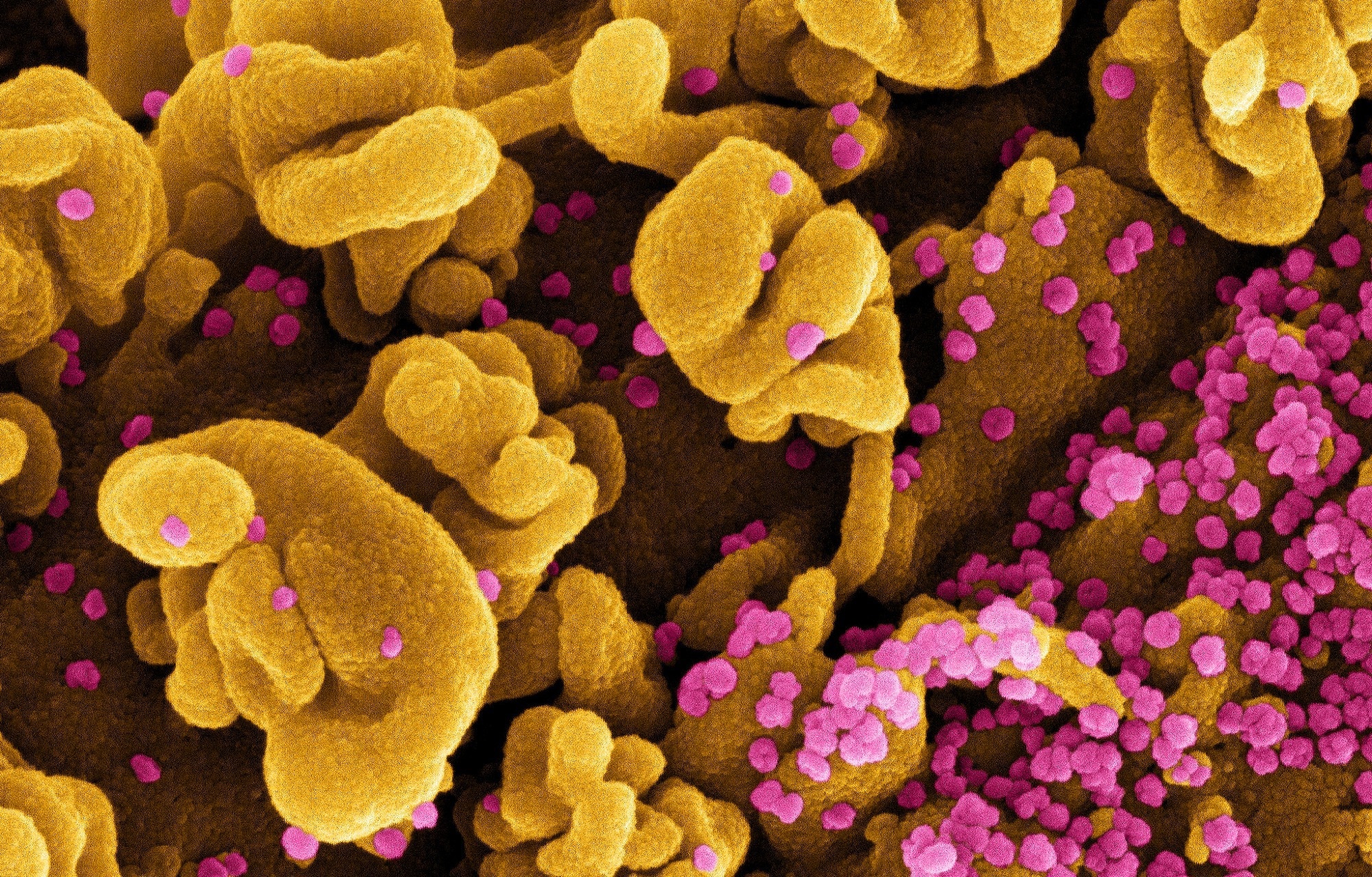A team of US-based scientists has recently explored the sensitivity of severe acute respiratory syndrome coronavirus 2 (SARS-CoV-2) omicron subvariant XBB/XBB.1.5 to vaccine-induced and infection-induced immune responses.
 Study: Increased vaccine sensitivity of an emerging SARS-CoV-2 variant. Image Credit: NIAID
Study: Increased vaccine sensitivity of an emerging SARS-CoV-2 variant. Image Credit: NIAID

 *Important notice: medRxiv publishes preliminary scientific reports that are not peer-reviewed and, therefore, should not be regarded as conclusive, guide clinical practice/health-related behavior, or treated as established information.
*Important notice: medRxiv publishes preliminary scientific reports that are not peer-reviewed and, therefore, should not be regarded as conclusive, guide clinical practice/health-related behavior, or treated as established information.
Background
Viral evolution is primarily driven by host immune responses that act as a major source of selection pressure. Because of progressive induction in anti-SARS-CoV-2 immunity at the population level due to vaccination and infection, newly emerging viral variants are frequently being exposed to selection pressures, leading to the emergence of viral variants with escape mutations and improvement in immune fitness.
SARS-CoV-2 omicron is the most recently emerged variant of concern (VOC) with a significantly higher ability to evade pre-existing immunity compared to other SARS-CoV-2 VOCs. Among various subvariants of omicron, XBB/XBB.1.5 has shown higher immune escape ability and has become the predominantly circulating variant in the US by late January. 2023.
In the current study, scientists have explored whether omicron subvariant XBB/XBB.1.5 is more sensitive or resistant than omicron BA.5-related subvariants to host immune responses acquired through infection or vaccination.
Study design
The study was conducted on a total of 31,739 individuals who tested positive for SARS-CoV-2 between December 2022 and February 2023. The spike-gene detection and spike-gene target failure (SGTF) approaches were used to differentiate XBB/XBB.1.5 and other BA.2-related subvariants from BA.4- and BA.5-related subvariants.
Among all enrolled cases, 9,869 were identified with XBB/XBB.1.5 infection, and 21,870 were identified with infection by other omicron subvariants. Both XBB/XBB.1.5-infected cases and non-XBB/XBB.1.5-infected cases showed comparable demographic characteristics, comorbidities, and healthcare utilization frequencies.
Important observations
The study analysis revealed that the cases with XBB/XBB.1.5 Infections have received a lower number of coronavirus disease 2019 (COVID-19) vaccine doses compared to the cases infected with other co-circulating subvariants. Moreover, XBB/XBB.1.5-infected cases showed a relatively higher probability of having previous SARS-CoV-2 infections, irrespective of vaccination status.
These observations indicate that omicron XBB/XBB.1.5 is more resistant to infection-induced immunity than other co-circulating omicron subvariants and pre-omicron variants. However, this omicron subvariant is relatively more sensitive to vaccine-induced immune responses. The sensitivity of XBB/XBB.1.5 to vaccine-induced immunity does not seem to differ with the timing of vaccination and the number of monovalent or bivalent vaccine doses.
Regarding disease severity, COVID-19 vaccination was found to provide more protection against hospitalization among XBB/XBB.1.5-infected cases than that among non- XBB/XBB.1.5-infected cases. However, no significant association was observed between previous infection with XBB/XBB.1.5 or non-XBB/XBB.1.5 subvariants and risk of hospitalization.
These observations further highlight the importance of COVID-19 vaccination in preventing XBB/XBB.1.5 infection and disease progression.
Study significance
The study reveals that omicron subvariant XBB/XBB.1.5 is more sensitive to vaccine-induced immunity than other co-circulating subvariants. Moreover, COVID-19 vaccination provides more protection against hospital admission among cases infected with XBB/XBB.1.5.
Despite being sensitive to vaccine-induced immunity, XBB/XBB.1.5 exhibits a higher ability to evade infection-induced immunity than other co-circulating omicron subvariants as well as pre-omicron variants. Given this finding, scientists suggest that continuous monitoring of vaccine-induced and infection-induced protection changes is required to inform responses to newly emerging SARS-CoV-2 variants.

 *Important notice: medRxiv publishes preliminary scientific reports that are not peer-reviewed and, therefore, should not be regarded as conclusive, guide clinical practice/health-related behavior, or treated as established information.
*Important notice: medRxiv publishes preliminary scientific reports that are not peer-reviewed and, therefore, should not be regarded as conclusive, guide clinical practice/health-related behavior, or treated as established information.